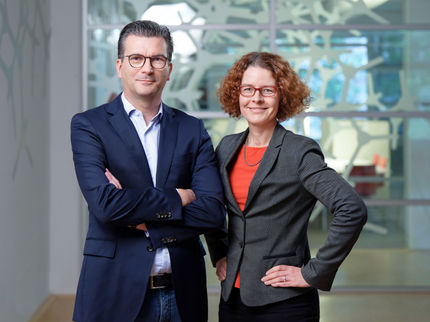Sachtleben particles eliminate chemical and biological warfare agents
Advertisement
Ever since the Chemical Weapon Convention was signed in 1997, warfare agents such as Sarin, Soman, Tabun or V agents such as VX have been outlawed all over the world. In WWI, these weapons killed some 100,000 soldiers and injured over a million more. The international convention now calls for the destruction of all of the world's major arsenals of these agents. However, these complex chemical substances cannot simply be destroyed, and continue to be a significant danger for mankind.
In "Science for Peace", a joint project between NATO and the US Army, the Boreskov Institute for Catalysis in Novosibirsk, Russia, and the University of Cincinnati USA have been working together for five years now to finally rid the world of its arsenals of chemical and biological warfare agents using these catalysts.
These warfare agents have been successfully degraded (albeit as yet in laboratory quantities) using a titanium dioxide photo catalyst and UV light. If ultrasonic waves are also included, the process is speeded up even more. After several years of research with a wide range of products, Russian scientists at the Boreskov Institute have now decided on Sachtleben's titanium dioxide catalyst systems because of - as Dr. Alexander Vorontsov explains - their "high standards of quality".
Following laboratory trials, the project is now entering into a "semi-technical stage". This means that data is now being prepared for a "large system". To this end, Sachtleben is providing scientists with additional particles, made specifically to their requirements, with special surface properties. "We are delighted that one of our products is being used as a contribution to international disarmament, and that our photo catalysts are helping to make it possible to destroy these dangerous weapons systems," Sachtleben's CEO Prof. Dr. Wolf-D. Griebler is happy to announce.
Most read news
Organizations
Other news from the department research and development

Get the chemical industry in your inbox
By submitting this form you agree that LUMITOS AG will send you the newsletter(s) selected above by email. Your data will not be passed on to third parties. Your data will be stored and processed in accordance with our data protection regulations. LUMITOS may contact you by email for the purpose of advertising or market and opinion surveys. You can revoke your consent at any time without giving reasons to LUMITOS AG, Ernst-Augustin-Str. 2, 12489 Berlin, Germany or by e-mail at revoke@lumitos.com with effect for the future. In addition, each email contains a link to unsubscribe from the corresponding newsletter.
































































